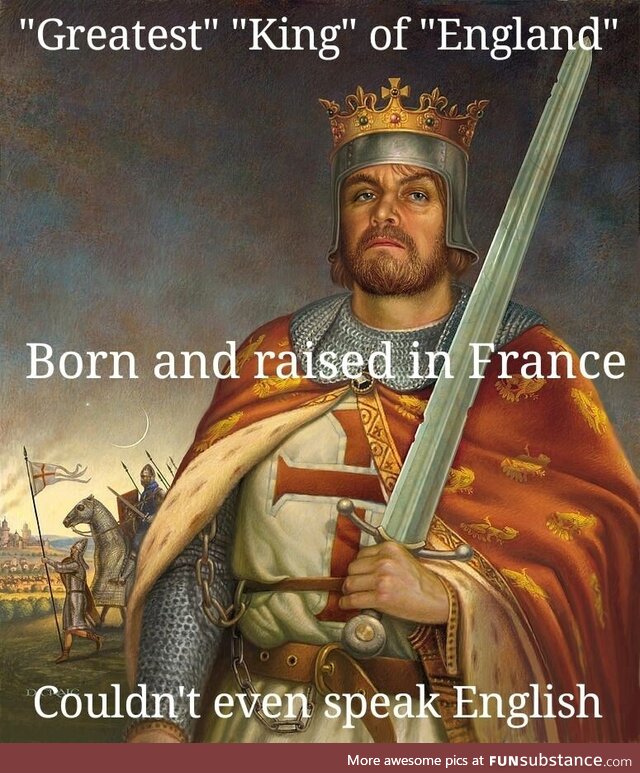Featured Posts

I wish I had a fort

The powerof positive thinking

NASA

Pray for Australia

Take care of each other

She has emerged

My soul feels so much better

I just ordered one. #Just2019HispanicThings

He really wanted his photo at the Halloween party, but was super scared of the spiders

The Only Thing More Contagious Than COVID19 Might Be This Fox's Smile
About
FAQ
Contact
Rules
Terms
Privacy
Feedback
Keyboard Shortcuts:
Previous Post · Next Post · + CTRL Skip Post
Previous Post · Next Post · + CTRL Skip Post
© 2025 FunSubstance · funny and entertaining pictures, memes, gifs & videos.



The country of England was founded in the 10th century. Richard I was king in the 11th century.
So why didn’t he speak English almost 100 years later? Well… remember England became a country in the 10th century- but the first records of early “English” come from the 5th century. The language existed before the country. It was brought through places like Germany into the south of Britain and displaced Celtic languages and British Latin etc. spoken by local peoples. What we know today as “English” didn’t exist until around the 15th century- 4 centuries after the death of Richard I.
We retroactively call the languages that directly “morphed” into modern English “english” because those languages were adopted by England-